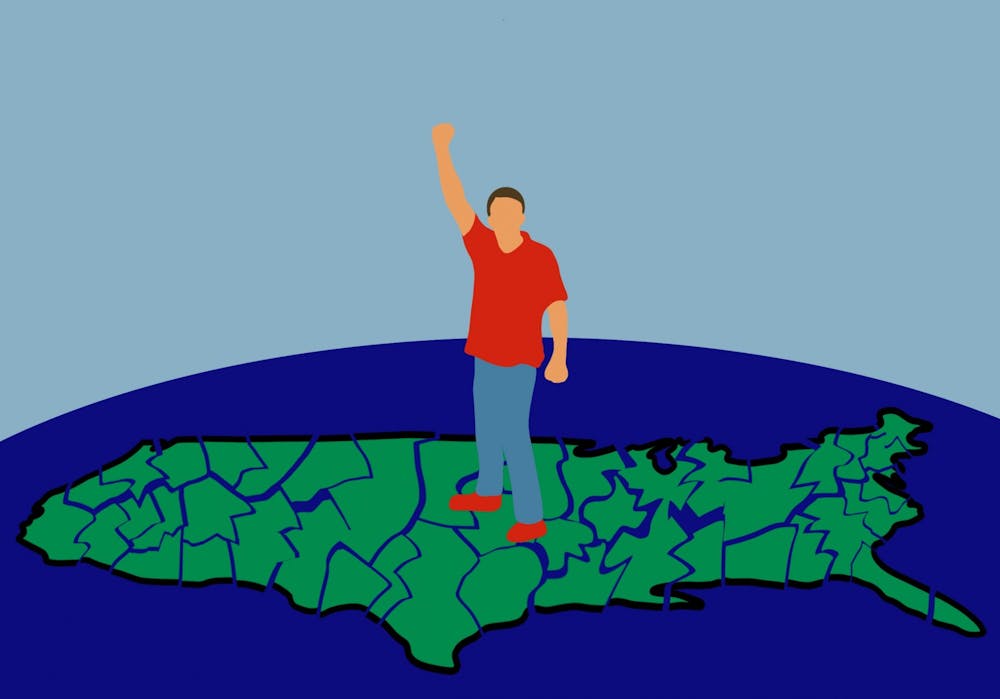The sphere of consensus in our society grows smaller and smaller by the day. We have reached a moment in time that is both a standstill of progress and an unending barrage of attacks and counterstrikes. Nothing is sacred — least of all facts. When even the truth is muddied, it can be so easy to lower our eyes to the ground and resign ourselves to this new world. Most people shake their heads and lament what has changed — all while refusing to do anything about it.
There are calls for a return to normalcy, when dissent was supposedly nonexistent and all people lived in harmony. The status quo cries out for a past when life was seemingly picturesque and conflict-free. More often than not, the burden falls on the dreaded radical — those who advocate for social revolution on the behalf of the voiceless and marginalized. The majority — mainstream politics, which speaks in favor of preservation of the current social order — has, time and time again, blamed polarization on the few who would dare speak against the way things used to be.
Many claim that the radical — which has become a filthy word in some circles — wants society to shift away from the past. The radical wants to pull us away from reason and into senseless chaos. The radical is loud and abrasive. The radical is a threat to our collective values. Some would have you believe that the radical — and by extension, any form of change — is the source of all of our problems. They cite violence as proof that we should accept the convenient familiarity of the status quo, even when this status quo brings with it widespread inequality. For them, it is better to return to a time with known flaws, than towards an uncertain future.
But the past is a word that loses all meaning in the wrong hands. And what past do those who call for preservation refer to? Conflict is ingrained in our country, stemming back to its very founding. To believe that there was once a time when people thought as one, when disagreements never took place, is to believe in a myth.
Those who oppose change will claim to stand for peace — a kind of peace that comes with submission. “Think of the children!” they will say, arguing that social disruption begets societal degradation. Yes, there is safety in conformity, in the same way that there is comfort in being told what to do. But we do not live in peaceful times. When poor people in a rich country starve, when children lose their parents to institutionalized brutality or are raised by families who cannot provide for their needs and wants and dreams — how is this peace? Can we truly say that this is the peace we want to live in?
There can be no peace when oppression runs rampant and lies are labeled “alternative facts.” The violence may not be visible, but it is there nonetheless. This intangible threat is arguably a worse form of oppression — one that lurks in the shadows, inflicted by those who will claim no such injustice exists. When we refuse to recognize the dignity of a fellow human being in the interest of corporate machines and economic outputs — this deserves outrage. Radicalism is just one of many ways of expressing that righteous anger.
A common retort to radicals is that they should quit complaining and be grateful for the strides that have been made. Things have gotten better — certainly. It would be foolish to deny that conditions have improved, that the standard of living has risen dramatically. But it does not follow that we should now rest on our laurels, uncritical of all the work that remains to be done. The beauty of progressivism is that there is a constant push to be better. Even when its goals are unrealistic or even infeasible, radical movements have the power to sway the masses and encourage gradual change, making ideas that promote greater welfare appear more reasonable within public discourse. We saw it with the women's suffrage movement, the American civil rights movement and more.
Extremism in any form — on either side of the political spectrum — is an unpredictable thing. By supporting the radical, I am not condoning violence, nor acts of terrorism or insurgency. But when the radical burns bras, when she hangs provocative signs, when she gathers at pageants and rallies, people are eager to silence her. They insist that the only way to preserve an orderly society is to perpetuate the same mode of mistreatment that has existed for generations. This is not a viable solution. Why should oppression be tolerated? Why are these sacrifices deemed acceptable?
Complacency is easy. We all fall victim to it in one way or another. I myself am far from an active radical, and I do not pretend that I am not complicit to the injustices we live with every day. The radical is not perfect, but he has the courage to do what is hard — to look upon society with open eyes and say that there is something amiss, something he can help to fix.
The lie is this — that change is to be feared, a danger to everything we hold dear. And the truth — that even when it seems hopeless, that is all the more reason to try.
Samantha Cynn is an Opinion Columnist for The Cavalier Daily. She can be reached at opinion@cavalierdaily.com.
The opinions expressed in this column are not necessarily those of The Cavalier Daily. Columns represent the views of the authors alone.







